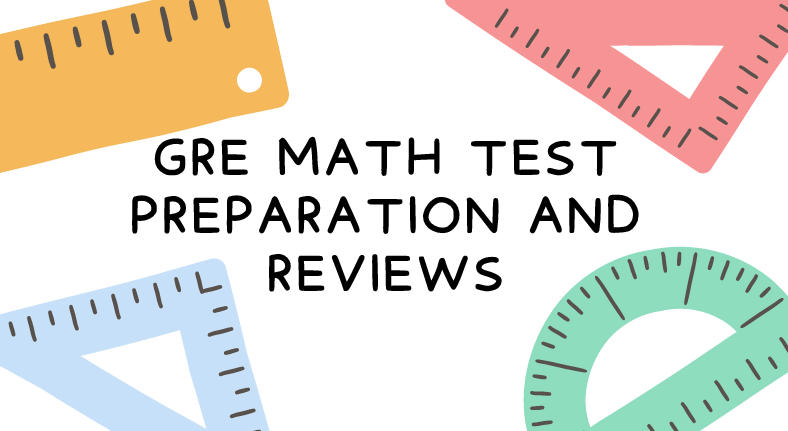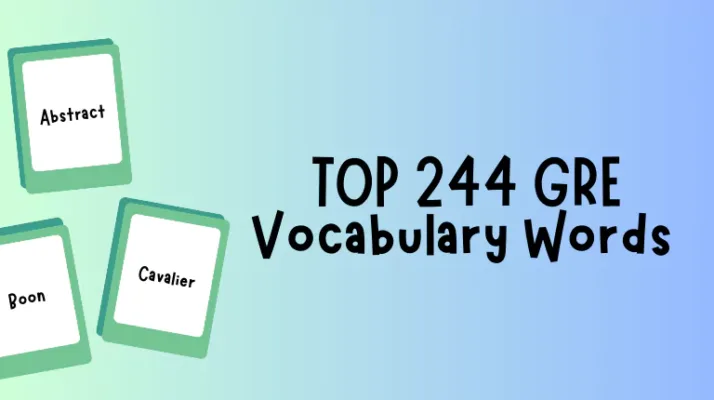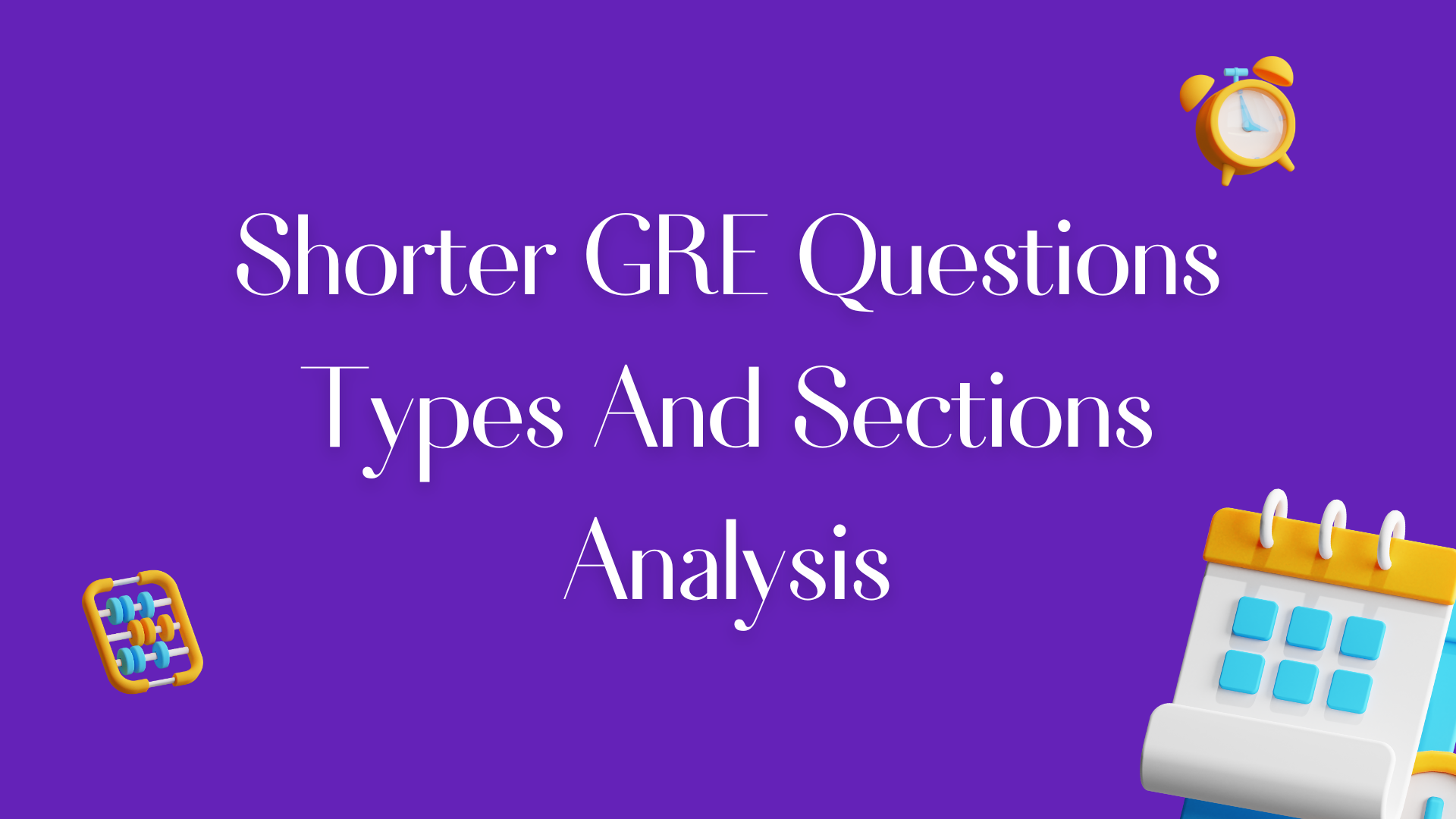Whether you’re good at math or not, you can get the score you want on your GRE math test. You need a list of tested math topics and practical steps to start.
The vast amount of prep material on the internet with conflicting advice makes it confusing for the students. We’ve prepared a short GRE guide to help you get started with your test prep.
GRE Math Content Review
Most students hate the math section because they assume that the GRE math test is difficult. They prepare randomly and using outdated resources. As a result, they end up scoring low. The truth is that the GRE is tricky, which makes testing their school-level Math skills difficult. You need a systemic approach to get a good score. How hard is the GRE Math? Read my personal experience.
Understanding the underlying GRE math concepts is an effective way to get a better score. Knowing what is expected of you helps to break down your goal and achieve it.
The GRE does not test any complex mathematical concepts. The syllabus is pretty elementary. The test aims to assess your fundamental mathematical skills. GRE evaluates your problem-solving and logical reasoning abilities.
As a test taker, you must go through the concepts for a quick review. Here are the top ten topics with a brief review of what they are. Consider having a firm grasp of these concepts if you want to ace the test.
Word Problems
The test includes challenging word problems that require you to translate English into Math. It’s generally recommended to take time to understand word problems and solve them accordingly.
Number Properties
The number properties are often tested on Quantitative Comparisons. It tests odds, even, fractions, integers, positives, and negatives.
Percents
Percent problems include missing values, profits, loss, and interest concepts. Make sure to understand them and remember the formula for simple and compound interest.
Ratio And Proportion
A ratio is a comparison of two properties. At the same time, a proportion is an equality of two ratios. The GRE test requires you to solve these relationships in geometry or algebra word problems.
Probability
Probability is a measure of the likelihood of something happening. You need to learn to get the possible or total number of outcomes. This topic also includes permutation and combination, so you need to know the formulas.
Rates And Work
When you see a topic repeating, it’s your sign to memorize it by heart. Rates and work are the most basic concepts you might see in every GRE math test. Consider it one of the essential topics and practice it until you master it.
Geometry
Geometry topics contain lines, triangles, angles, circles, polygons, and other dimensions of figures. Make sure to understand the formulas associated with these figures. Triangles are the most tested figure on GRE math. Therefore, you must know the Pythagorean Theorem.
System of Equations
You should be able to solve a different system of equations, such as linear and quadratic equations. Remember the formulas, rules of exponents, and everything related to solving these questions effectively.
Functions
Functions define the relationship between one variable and another variable. Think of it as another way of writing equations. GRE tests you with made-up functions, so you must pay attention to the question and solve it accordingly.
Data Analysis
It includes statistics, graphs, tables, charts, and questions regarding data trends. Data Analysis questions need your time and consideration. Hence, it’s always advised not to rush through them. Familiarize yourself with such questions and try to identify the presented information.
How to Prepare for GRE Math Tests?
After reviewing the topics, I’m sure you’ve one thing in mind: how do I prepare for them?
First up, understand that your desired GRE score is within your grasp. Second, make sure you start your GRE preparation three months before the test. So that you have enough time to strengthen your weak subjects and maintain the strong ones.
Lastly, you need an easy-to-follow plan for GRE test prep because it can be difficult if you don’t know where to start.
In this section, we have got five steps that can help you to ace your GRE Quantitative section.
Get Familiar With The Format
One major mistake most students make is to start studying without knowing the topics and the test format. This strategy is not recommended.
You need to be well acquainted with the tested math topics mentioned above. As you get familiar with the content, start covering them one by one.
Moreover, build your test format knowledge and get used to it. Look at the GRE practice tests to understand the structure of questions. Take some time to see the type of questions, how many math questions there are, and how much time you’ll have to solve them.
Once you get a brief overview of the Quantitative section, start preparing.
Take the GRE Diagnostic Test
Take a GRE diagnostic test before you start with test preparation. Understand your current mathematical skills and note down your score.
Take your time to review the review test and see which questions you couldn’t do and which ones took more time.
Make A Study Plan
With the help of your score and your mathematical skill level, a Scholar Den GRE mentor can help you create a study plan for your test prep.
Your goal should be to take you from one level to another level. For instance, if you’ve got below 80% on your practice test, start with the entry-level practice questions and make your way to the medium-level questions.
Make sure you’ve enough time for your practice. It’s generally best to start preparing three to six months before tests. Use this time to calculate the hours you need to study per day.
Remember, no one size fits all. You need to make a study plan tailored to your needs.
Calculate Your Time
Even math geniuses fail if they spend more time on a question than required. Hence, calculate your time on each question and the overall test.
Each Quantitative section has 20 questions, and you’re given 35 minutes to complete them. Ideally, you should spend no more than two minutes per question.
With good practice, you’ll be able to solve some questions within 1 minute, but others can take more time. That’s why I always start with solving less time-consuming questions first.
Practice Questions
After you plan your study hours and the list of tested math topics, it’s time to work on them one by one.
Students get confused when they try to practice everything together. But we recommend you take one chapter at a time and practice their questions. Once you get hold of it, move to another chapter.
On Scholar Den, you get 1600+ real GRE questions to practice. Start solving them and assess your accuracy.
Conclusion
It can be overwhelming to cover, but understand you can do it all if you move strategically. Just keep analyzing your mistakes and be optimistic.
Remember, you don’t have to do it alone. Get help wherever you need it. Find a mentor who lays out a plan for you and helps you with your progress. Check out Scholar Den resources. The platform offers accurate and up-to-date material that will help you improve your GRE score.
Read on: How I got a perfect score in GRE Math.








